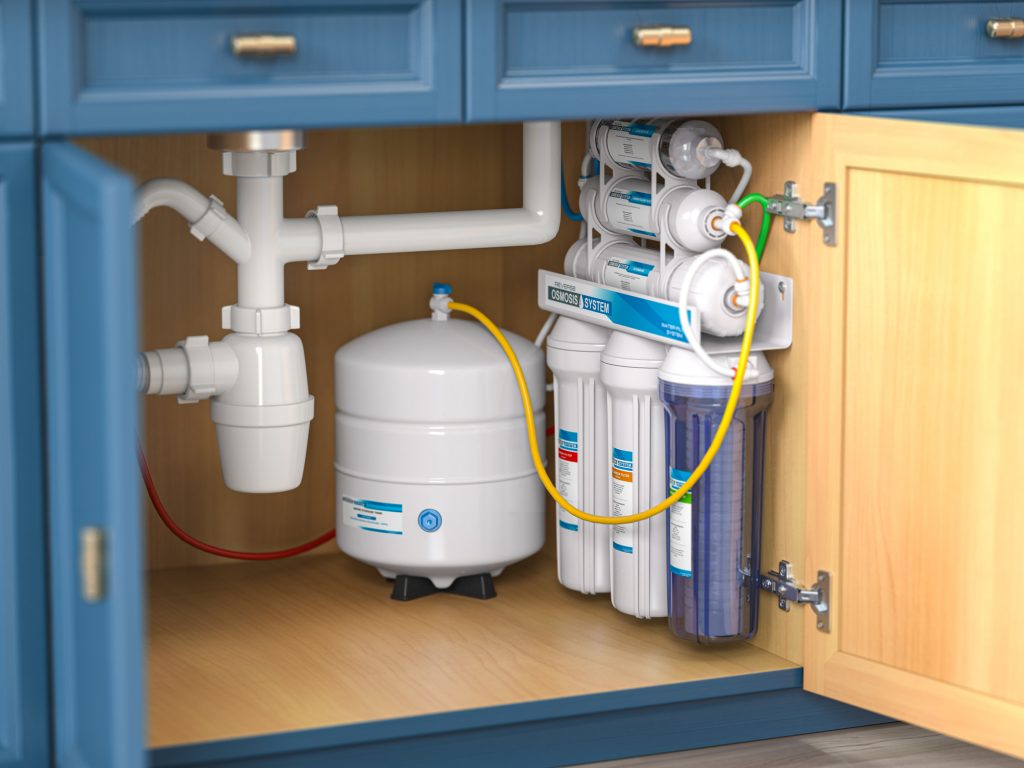Benefits of a Water Softener
Welcome to our comprehensive guide on the benefits of a water softener. In this article, we will explore the advantages of using a water softener system in your home or business. From improving the quality of your water to extending the lifespan of your appliances, a water softener can make a significant difference in your daily life.
Understanding Water Hardness
Before diving into the benefits of a water softener, let’s first understand what water hardness is. Water hardness refers to the amount of dissolved minerals, primarily calcium and magnesium ions, present in your water supply. These minerals can cause a variety of issues, which we will discuss in the following sections.
Prevents Scale Build-Up
One of the primary benefits of a water softener is its ability to prevent scale build-up in your plumbing system and appliances. When hard water flows through pipes and fixtures, it leaves behind mineral deposits known as scale. Over time, these deposits can clog pipes, reduce water flow, and damage your appliances. By using a water softener, you can minimize the formation of scale and protect your plumbing system.
Extends Appliance Lifespan
Hard water can significantly impact the lifespan and efficiency of your appliances, such as washing machines, dishwashers, and water heaters. The minerals in hard water can accumulate inside these appliances, leading to reduced performance, increased energy consumption, and premature breakdowns. By installing a water softener, you can extend the lifespan of your appliances and save money on repairs or replacements.
Improves Water Heater Efficiency
Water heaters are particularly susceptible to the negative effects of hard water. The minerals in hard water can form a layer of scale on the heating elements, reducing their efficiency and potentially causing them to fail. With a water softener, you can prevent scale build-up in your water heater, ensuring optimal performance and energy efficiency.
Enhances Cleaning and Lathering
Hard water can make it challenging to achieve a satisfactory level of cleanliness and lathering. The minerals in hard water react with soap and detergent, forming a scum that can be difficult to rinse off. By using a water softener, you can enjoy cleaner dishes, softer clothes, and a more enjoyable bathing experience.
Softer Skin and Hair
Hard water can leave your skin feeling dry and your hair looking dull. The minerals in hard water can strip away the natural oils, leading to dryness and irritation. With a water softener, you can enjoy softer skin, smoother hair, and a more comfortable bathing or showering experience.
Saves Money on Cleaning Products
Using a water softener can also help you save money on cleaning products. Hard water requires more soap, detergent, and cleaning agents to achieve the desired results. By softening your water, you can reduce the amount of cleaning products needed, leading to cost savings in the long run.

In conclusion, installing a water softener can bring numerous benefits to your home or business. From preventing scale build-up and extending the lifespan of your appliances to improving water heater efficiency and enhancing cleaning and lathering, the advantages are undeniable. Say goodbye to the negative effects of hard water and enjoy the benefits of soft, high-quality water.
Frequently Asked Questions about the Benefits of a Water Softener
1. What is a water softener?
A water softener is a device that removes minerals like calcium and magnesium from hard water, making it soft and more suitable for various household uses.
2. How does a water softener work?
A water softener works by using a process called ion exchange, where resin beads attract and replace the calcium and magnesium ions in the water with sodium or potassium ions.
3. What are the benefits of using a water softener?
Using a water softener has several benefits, including:
Reduced scale buildup in pipes and appliances
Extended lifespan of water-using appliances
Softer and smoother skin and hair
Less soap and detergent usage
Improved efficiency of water heaters
4. Can a water softener improve the taste of water?
No, a water softener does not directly affect the taste of water. It primarily addresses the hardness caused by minerals in the water.
5. Are water softeners safe to use?
Yes, water softeners are safe to use. However, individuals on low-sodium diets should opt for potassium chloride instead of sodium chloride as a regenerating agent.
6. Do water softeners remove essential minerals from water?
Yes, water softeners remove minerals like calcium and magnesium, which are considered beneficial for health. However, these minerals can be obtained from other dietary sources.
7. How often should a water softener be regenerated?
The frequency of regeneration depends on the water hardness and the capacity of the water softener. Typically, regeneration is required every few days to a week.
8. Can a water softener help with dry skin and eczema?
Yes, using a water softener can help alleviate dry skin and eczema symptoms by reducing the amount of soap residue left on the skin and preventing moisture loss.
9. Do water softeners require maintenance?
Water softeners require periodic maintenance, such as refilling the salt or potassium chloride, cleaning the brine tank, and occasionally replacing the resin beads.
10. Can a water softener save money?
Yes, a water softener can save money in the long run by reducing the need for expensive repairs or replacements of appliances affected by scale buildup and by reducing the amount of soap and detergent used.




